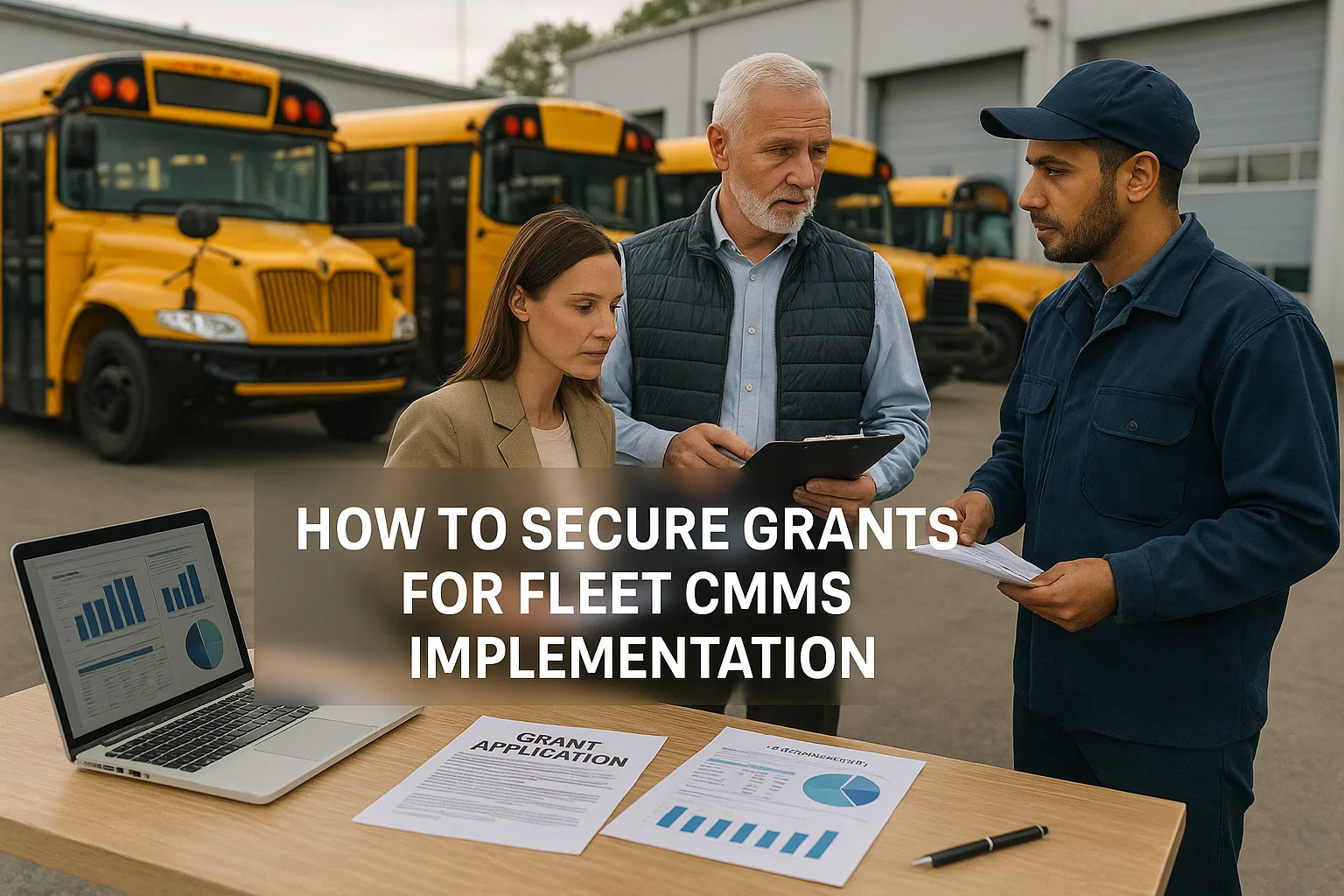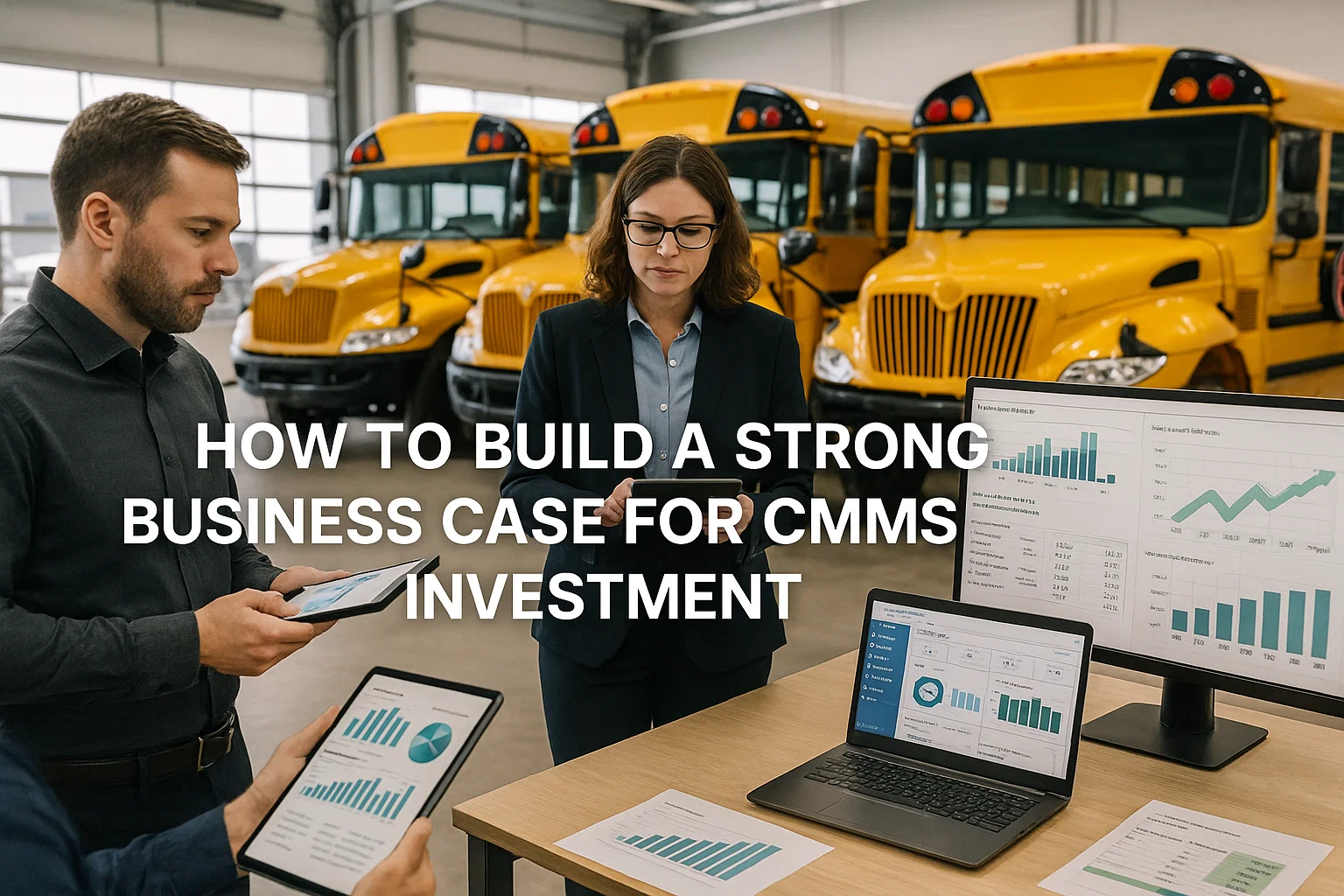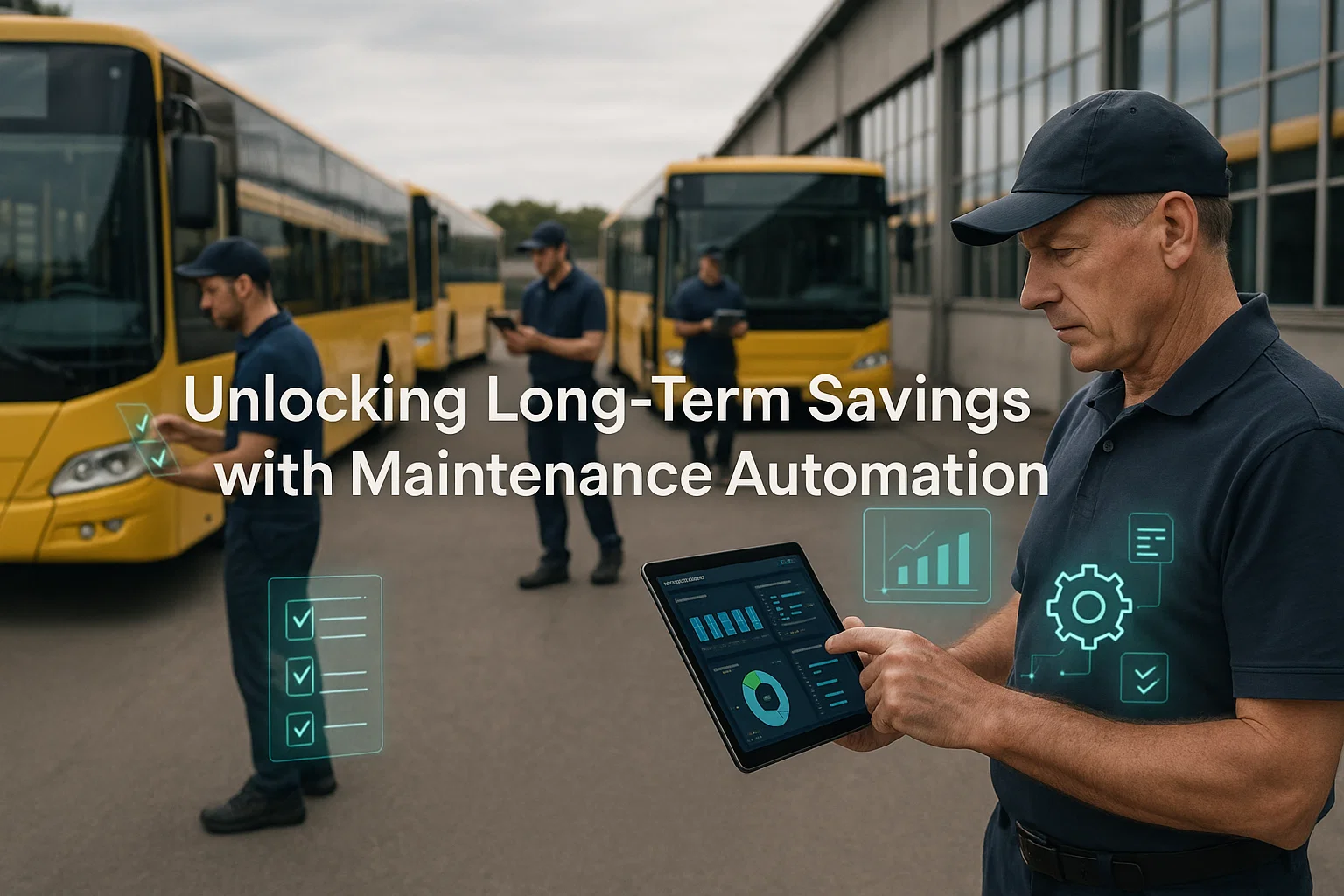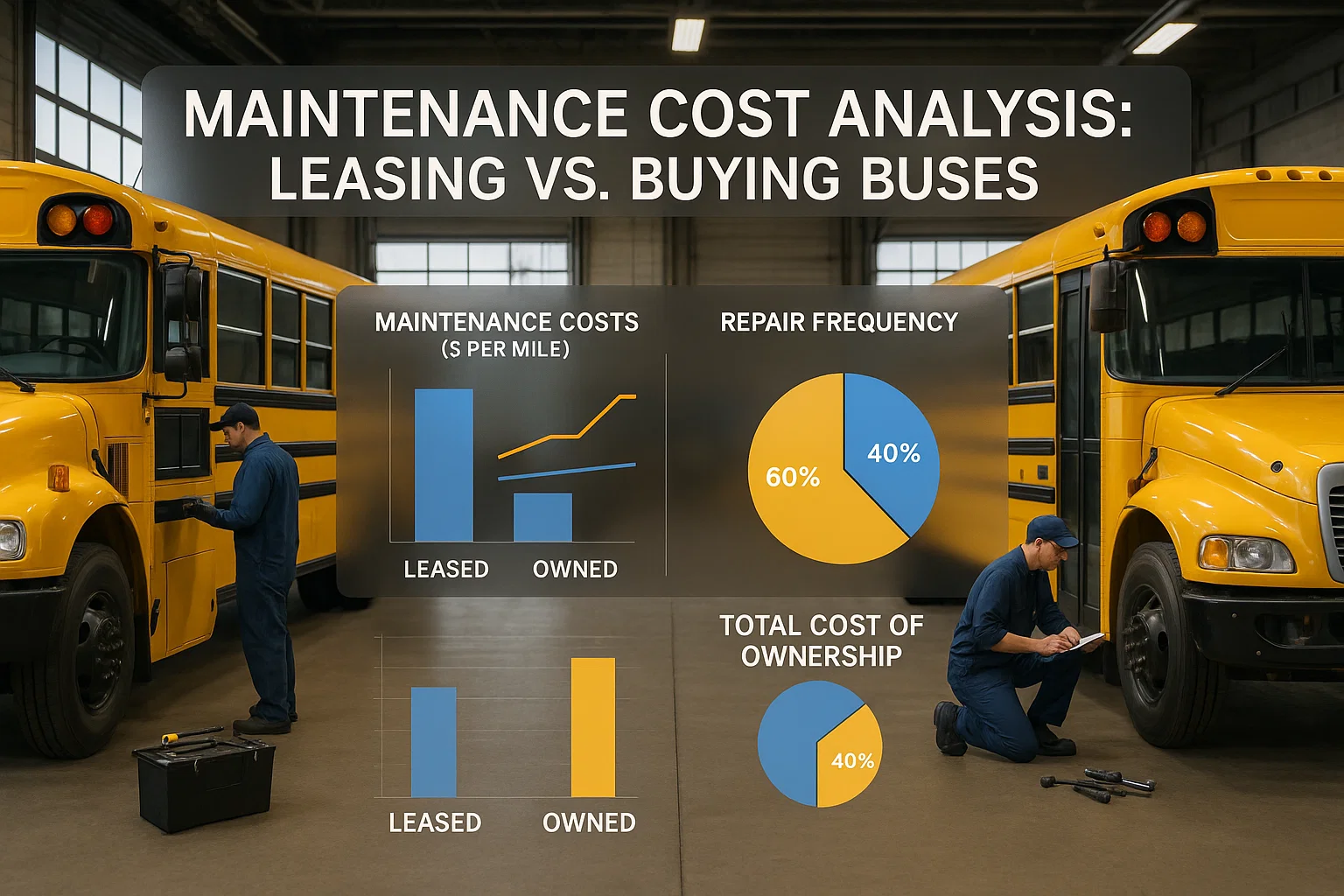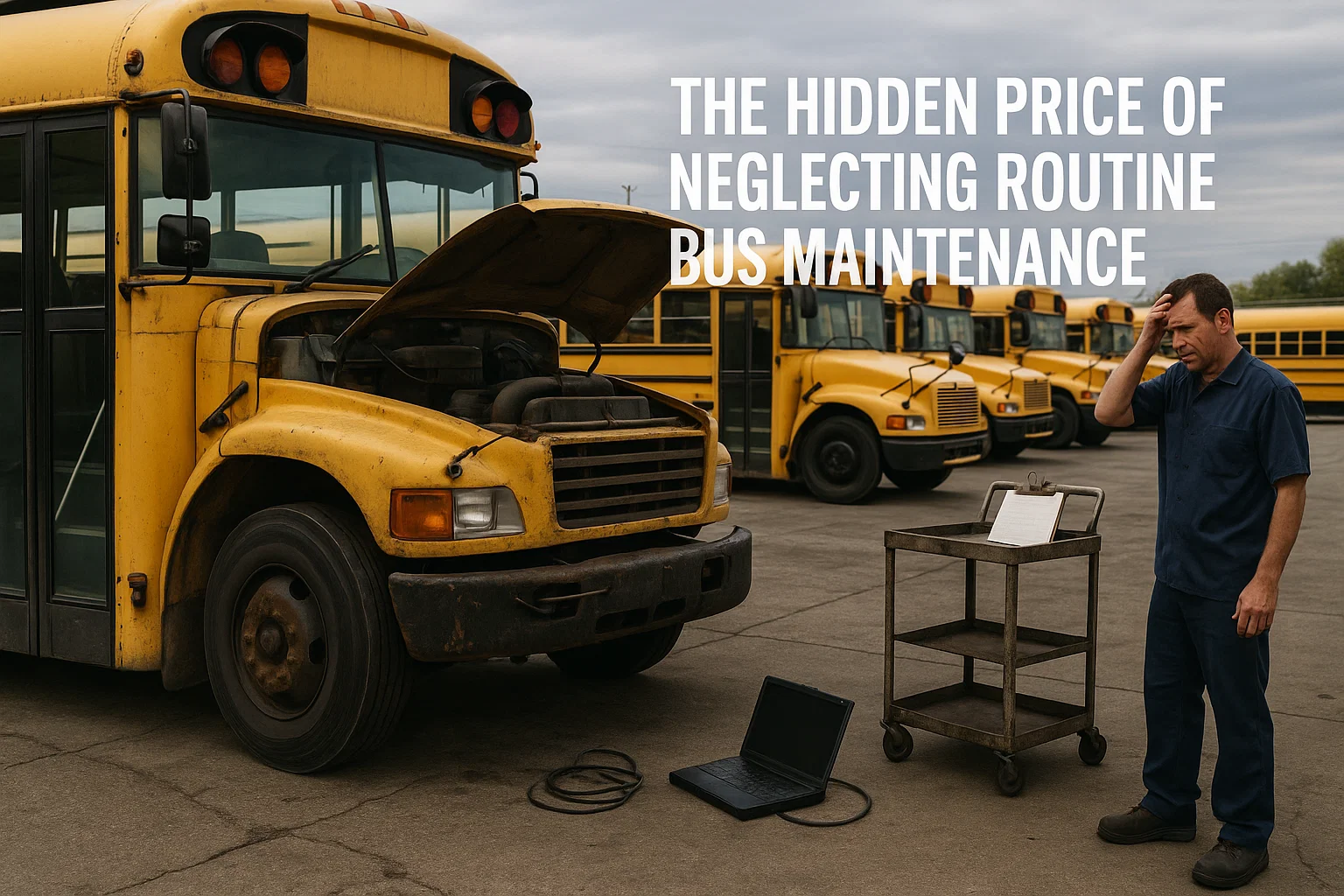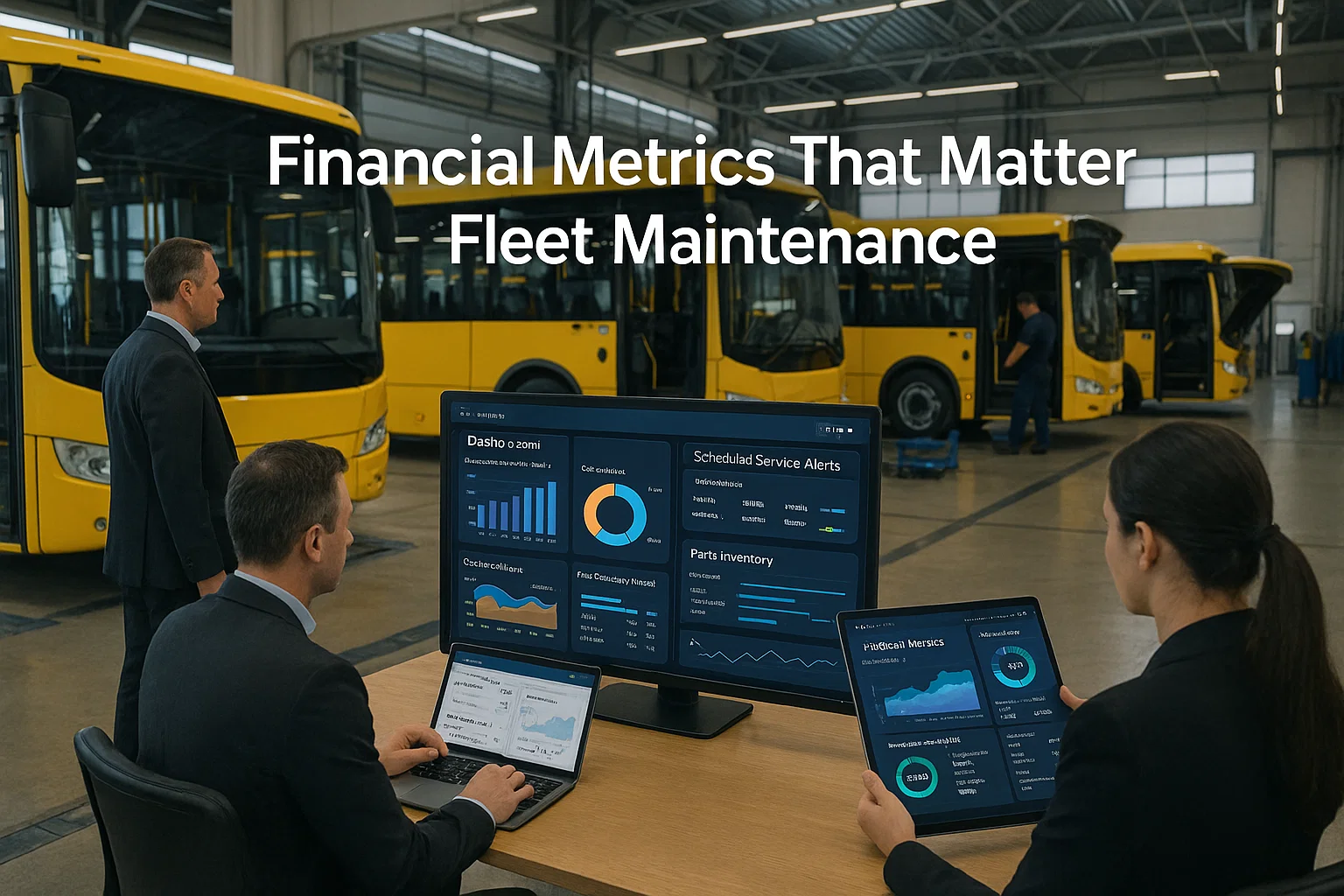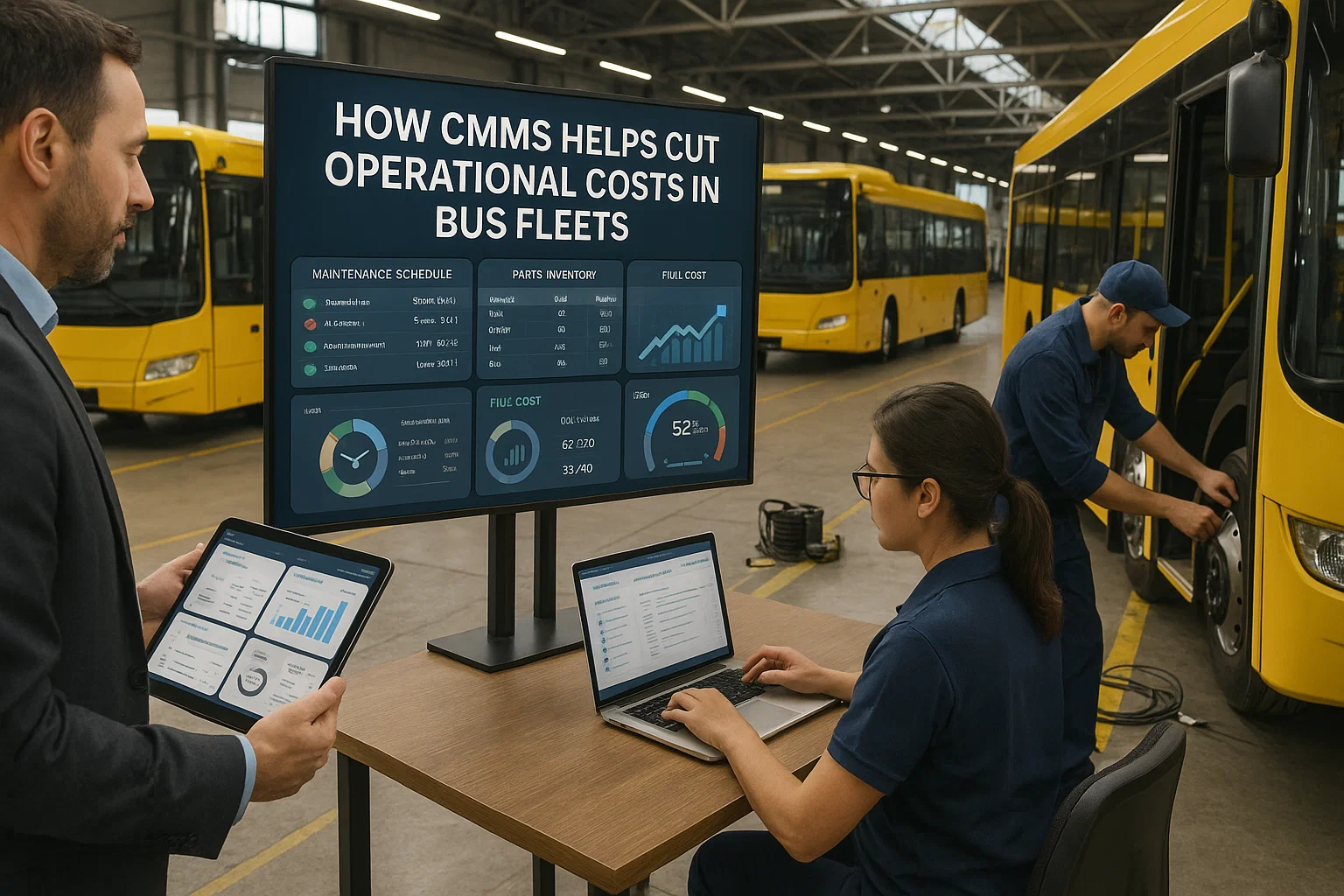Grant funding represents a critical opportunity for fleet operators to implement advanced maintenance management systems without straining operational budgets. Modern fleet technology platforms qualify for numerous federal, state, and private grant programs designed to improve transportation safety, efficiency, and environmental performance. With proper strategy and preparation, organizations can secure funding covering 50-100% of CMMS implementation costs, transforming fleet operations while preserving capital for other priorities.
The landscape of transportation grants has expanded significantly, with billions in funding available through programs targeting fleet modernization, safety improvements, and operational efficiency. Digital maintenance solutions align perfectly with grant objectives by demonstrating measurable improvements in vehicle reliability, emissions reduction, and public safety. However, competition for these funds remains intense, requiring sophisticated approaches that differentiate applications and prove compelling returns on public investment.
Organizations successfully securing grant funding through strategic application development report average awards of $250,000-1,500,000 for CMMS implementations. These grants not only cover software costs but often include hardware, training, and integration expenses, enabling comprehensive digital transformation. Understanding grant requirements, crafting compelling narratives, and demonstrating clear public benefits transforms CMMS implementation from a budget challenge into a fully-funded opportunity for operational excellence.
Start Your Grant Funding Journey
Learn which grants match your fleet's CMMS implementation needs perfectly.
Getting StartedBook a Demo
Understanding Available Grant Opportunities
The grant funding landscape offers diverse opportunities for CMMS implementation, each with specific requirements and priorities. Fleet modernization platforms qualify for multiple grant categories, enabling organizations to pursue various funding streams simultaneously. Understanding these opportunities and their alignment with CMMS capabilities maximizes funding potential.
Federal Grant Programs
Federal transportation grants provide the largest funding opportunities, with programs specifically supporting fleet technology improvements. The Department of Transportation's BUILD and RAISE grants fund transformative projects including comprehensive CMMS implementations. FTA Section 5339 Bus and Bus Facilities grants explicitly support maintenance facility improvements and management systems. Technology modernization initiatives under these programs regularly receive multi-million dollar awards.
Environmental grants through EPA's Diesel Emissions Reduction Act (DERA) and Clean School Bus programs increasingly recognize CMMS contributions to emissions reduction through optimized maintenance. These programs fund technology that improves vehicle efficiency and reduces environmental impact, with maintenance optimization systems demonstrating 15-20% emissions reductions through proper maintenance scheduling.
State and Local Funding Sources
State departments of transportation offer targeted grants for fleet improvements, often with less competition than federal programs. These grants typically range from $50,000-500,000 and favor projects demonstrating immediate local impact. Regional planning organizations and metropolitan planning organizations also provide funding for technology improving transportation efficiency within their jurisdictions. Local grant programs often have faster approval cycles and fewer bureaucratic requirements.
Critical Success Factors for Grant Applications
Essential Application Components
- Clear Problem Definition: Articulate specific maintenance challenges that CMMS will solve with quantifiable impacts
- Measurable Outcomes: Define concrete metrics for success including cost savings, safety improvements, and service reliability
- Public Benefit Demonstration: Show how CMMS implementation serves community needs beyond organizational benefits
- Sustainability Planning: Prove long-term viability without continued grant dependence
- Partnership Documentation: Include letters of support from stakeholders, vendors, and beneficiaries
Successful grant applications require more than technical merit—they must tell compelling stories that resonate with reviewers. Implementation planning tools help organizations develop narratives demonstrating how CMMS transforms not just maintenance operations but entire communities through improved transportation reliability and safety.
Common Application Mistakes
Many grant applications fail due to preventable errors that undermine otherwise strong proposals. Vague benefit claims without supporting data, unrealistic timelines, inadequate budget justification, and missing evaluation metrics consistently doom applications. Professional grant consultation helps organizations avoid these pitfalls while strengthening proposal competitiveness.
Building Compelling Grant Narratives
Grant success depends on crafting narratives that connect CMMS capabilities with grant program priorities. Fleet management platforms provide the data and projections necessary to build evidence-based proposals that stand out among hundreds of competing applications.
Aligning with Grant Priorities
Safety Enhancement Focus
Demonstrate how CMMS prevents accidents through systematic preventive maintenance and compliance tracking
Environmental Impact
Quantify emissions reductions and fuel savings from optimized maintenance practices
Economic Development
Show job creation, local economic benefits, and community transportation improvements
Successful applications explicitly map CMMS features to grant scoring criteria, demonstrating perfect alignment between funding objectives and implementation outcomes. Strategic alignment tools help organizations identify and emphasize the connections that matter most to reviewers.
Quantifying Impact and ROI
Grant reviewers demand concrete evidence of return on investment, requiring detailed financial projections and impact assessments. ROI calculation platforms generate the comprehensive analyses that prove CMMS implementation delivers exceptional value for grant investments, typically showing 300-400% returns within three years.
Budget Development and Justification
Grant budgets require meticulous detail and clear justification for every expense category. Implementation cost calculators help organizations develop comprehensive budgets that maximize funding while maintaining credibility with reviewers.
Comprehensive Cost Categories
- Software Licensing: Multi-year CMMS licenses with user scaling and module specifications
- Hardware Infrastructure: Servers, mobile devices, diagnostic equipment, and network improvements
- Professional Services: Implementation consulting, data migration, and system integration
- Training Programs: Initial training, ongoing education, and certification costs
- Change Management: Organizational transformation support and process reengineering
Detailed budgets demonstrating thorough planning and realistic cost estimates significantly improve approval chances. Budget planning assistance ensures all necessary elements receive appropriate funding while avoiding common budget pitfalls that trigger application rejection.
Maximize Your Grant Success Rate
Expert guidance transforms grant applications into funded CMMS implementations.
Getting StartedBook a Demo
Partnership and Collaboration Strategies
Strong partnerships dramatically improve grant success rates by demonstrating broad support and shared commitment to project success. Collaboration platforms facilitate partnership development that strengthens applications and ensures implementation success.
Strategic Partner Selection
Technology Partners
CMMS vendors providing implementation support, training, and ongoing technical assistance
Community Stakeholders
Local organizations, businesses, and advocacy groups benefiting from improved fleet services
Government Agencies
Regional planning bodies, environmental agencies, and transportation authorities offering support
Letters of support from diverse stakeholders prove community-wide benefits and implementation feasibility. Stakeholder engagement tools help organizations identify and recruit partners who strengthen grant applications through documented commitment and resource contributions.
Consortium Applications
Joint applications with multiple organizations often receive favorable consideration by demonstrating economies of scale and regional impact. Consortiums pooling resources for shared CMMS implementations show efficient use of grant funds while multiplying public benefits. Consortium development support helps organizations structure collaborative proposals that maximize funding potential.
Writing Techniques for Maximum Impact
Professional grant writing techniques transform technical CMMS capabilities into compelling narratives that resonate with reviewers. Proposal development platforms provide templates and guidance for creating powerful applications that score highly across evaluation criteria.
Executive Summary Excellence
- Hook Statement: Open with surprising statistics or compelling problems that demand attention
- Solution Overview: Clearly explain how CMMS addresses identified challenges
- Impact Preview: Highlight transformational outcomes in measurable terms
- Investment Justification: Demonstrate exceptional return on grant investment
- Call to Action: Create urgency for funding approval
Executive summaries often determine application fate, requiring perfect balance between technical detail and accessibility. Writing consultation services help craft summaries that capture reviewer attention while conveying essential information efficiently.
Technical Narrative Development
Technical sections must demonstrate deep understanding of CMMS capabilities while remaining accessible to non-technical reviewers. Technical writing tools help organizations explain complex systems through clear language, compelling visuals, and relevant examples that prove implementation feasibility.
Evaluation Criteria and Scoring Strategies
Understanding how grants are evaluated enables strategic application development that maximizes scoring potential. Scoring optimization tools analyze evaluation criteria to identify emphasis areas requiring greatest attention.
Common Evaluation Categories
Technical Merit (25-35%)
Solution quality, innovation, and feasibility of proposed CMMS implementation
Public Benefit (20-30%)
Community impact, service improvements, and broad stakeholder advantages
Cost-Effectiveness (15-25%)
Return on investment, sustainability, and efficient resource utilization
Applications must address every scoring criterion with specific evidence and examples. Scoring analysis services help organizations allocate proposal space proportionally to point values, ensuring high-value sections receive appropriate detail.
Post-Award Management and Compliance
Grant success extends beyond award notification, requiring careful management to ensure compliance and position for future funding. Grant management systems track requirements, deadlines, and reporting obligations that maintain good standing with funding agencies.
Implementation Timeline Management
Grant timelines require careful coordination between procurement, implementation, and reporting milestones. Delays or deviations risk funding clawbacks and future grant eligibility. Project management tools ensure CMMS implementations stay on schedule while meeting all grant requirements.
Performance Reporting Requirements
- Quarterly Progress Reports: Document implementation milestones and challenge resolution
- Financial Reporting: Track expenditures against budget categories with supporting documentation
- Outcome Measurement: Collect and report metrics proving grant objective achievement
- Success Stories: Develop case studies demonstrating public benefit realization
- Audit Preparation: Maintain comprehensive records for potential grant audits
Transform Grant Opportunities into Funded Projects
Professional support ensures your CMMS grant applications succeed.
Getting StartedBook a Demo
Success Stories and Case Studies
Real-world examples of successful CMMS grant implementations provide powerful evidence for new applications. Success tracking platforms document achievements that strengthen future grant proposals through proven results.
Municipal Fleet Transformation
Mid-Size City Success
$750,000 RAISE grant funded complete CMMS implementation reducing costs 35%
Rural Transit Victory
$450,000 FTA grant enabled small agency to modernize maintenance operations
School District Win
$1.2M EPA grant supported CMMS reducing emissions through optimized maintenance
These successes demonstrate that organizations of all sizes can secure significant grant funding for CMMS implementation. Case study development helps organizations leverage these examples while crafting their unique success narratives.
Grant Writing Resources and Support
Professional resources significantly improve grant success rates, transforming good ideas into funded projects. Grant support services provide expertise that navigates complex application processes while maximizing scoring potential.
Available Support Services
- Grant Research: Identify all applicable funding opportunities with deadline tracking
- Application Development: Professional writing and review services ensuring competitive proposals
- Budget Preparation: Detailed cost development with appropriate justifications
- Partner Coordination: Facilitate consortium development and stakeholder engagement
- Review and Refinement: Expert evaluation identifying improvement opportunities before submission
Investment in professional grant support typically returns 10-20 times its cost through improved success rates and larger award amounts. Grant consulting services transform the overwhelming grant process into manageable steps toward funded implementation.
Timeline Planning and Milestone Management
Successful grant applications require careful timeline development that demonstrates realistic planning while maintaining ambitious goals. Project planning platforms create detailed timelines that convince reviewers of implementation feasibility.
Critical Timeline Components
Pre-Implementation Phase
Procurement, contracting, and preparation activities setting foundation for success
Implementation Milestones
Phased rollout with specific deliverables and success metrics at each stage
Evaluation Checkpoints
Regular assessment periods ensuring project remains on track with corrections as needed
Detailed timelines with contingency planning demonstrate professional project management that increases reviewer confidence. Timeline development tools ensure all critical elements receive appropriate scheduling while maintaining achievable deadlines.
Sustainability and Long-term Planning
Grant applications must demonstrate sustainability beyond initial funding periods, proving long-term viability without continued grant dependence. Sustainability planning tools develop compelling strategies that ensure lasting impact from grant investments.
Sustainability Strategy Elements
- Revenue Generation: Show how CMMS cost savings fund ongoing operations
- Efficiency Gains: Demonstrate operational improvements creating sustainable funding
- Partnership Commitments: Document long-term support from stakeholders
- Scalability Planning: Explain expansion strategies leveraging initial investments
- Knowledge Transfer: Plan for sharing lessons learned with broader community
Strong sustainability plans differentiate winning applications by proving lasting value from one-time investments. Financial modeling platforms generate projections showing how CMMS implementations become self-sustaining through operational savings.
Frequently Asked Questions
What grant opportunities are available for Bus CMMS implementation and how can fleets maximize their funding potential?
Fleet technology funding opportunities exist across numerous federal, state, and private grant programs, with successful applicants regularly securing $250,000-1,500,000 for comprehensive CMMS implementations. Federal programs including DOT's BUILD/RAISE grants, FTA Section 5339 Bus Facilities funding, and EPA's DERA emissions reduction grants explicitly support maintenance management technology that improves safety, efficiency, and environmental performance. State departments of transportation offer additional programs with less competition, while regional planning organizations provide targeted funding for local fleet improvements. Grant matching services help organizations identify all applicable opportunities, with most fleets qualifying for 5-10 different programs annually. Success requires understanding that CMMS perfectly aligns with multiple grant priorities simultaneously—safety enhancement through preventive maintenance, emissions reduction via optimized service schedules, economic development through operational efficiency, and community benefit through reliable transportation services. The key to maximizing funding involves pursuing multiple grants strategically, layering different funding sources to cover various implementation aspects. Professional grant development increases success rates from the typical 15-20% to 60-70% through superior narrative development, precise budget justification, and perfect alignment with evaluation criteria. Organizations should begin grant pursuits 6-12 months before implementation needs, allowing time for research, partnership development, and application refinement that maximizes both approval probability and award amounts.
How can fleet operators craft winning grant proposals for Bus CMMS funding?
Winning grant proposals for CMMS implementation combine compelling narratives, solid data, and perfect technical execution to stand out among hundreds of competing applications. Start by thoroughly researching grant priorities and evaluation criteria, then explicitly map every CMMS capability to these requirements, demonstrating perfect alignment between funding objectives and implementation outcomes. Develop powerful problem statements using local data showing current maintenance challenges—vehicle breakdowns, safety incidents, budget overruns, and service failures—that CMMS will definitively solve. Proposal development platforms help craft narratives that connect technical capabilities with human impact, showing how improved maintenance translates into students arriving safely at school, workers reaching jobs reliably, and communities accessing essential services. Include concrete, measurable outcomes with specific metrics: 35% maintenance cost reduction, 50% decrease in breakdowns, 25% improvement in on-time performance, and complete regulatory compliance within defined timeframes. Build comprehensive budgets that account for all implementation costs while demonstrating exceptional return on investment, typically showing 300-400% returns within three years. Expert grant writers strengthen applications through professional language, compelling graphics, and flawless technical presentation that maximizes scoring across all evaluation categories. Secure diverse stakeholder support through letters from community organizations, government agencies, and business partners that validate need and commitment. Most importantly, demonstrate sustainability by showing how CMMS cost savings will fund ongoing operations without continued grant dependence, proving lasting value from one-time public investment.
Secure Funding for Your CMMS Implementation
Turn grant opportunities into fully-funded fleet transformation projects.
Getting StartedBook a Demo
Conclusion
Grant funding transforms CMMS implementation from a budget challenge into a fully-funded opportunity for fleet modernization and operational excellence. With billions available through diverse programs and proven strategies for success, organizations of all sizes can secure the resources needed to implement comprehensive maintenance management systems that deliver lasting value.
Success in grant acquisition requires more than identifying opportunities—it demands strategic planning, compelling storytelling, and meticulous execution that differentiates applications in competitive funding environments. Organizations that invest in professional grant development, build strong partnerships, and align proposals perfectly with funding priorities consistently achieve success rates exceeding 60%, securing average awards of $250,000-1,500,000.
The path to funded CMMS implementation begins with understanding available opportunities, developing compelling narratives, and executing flawless applications that demonstrate exceptional public value. By following proven strategies and leveraging professional support services, fleet operators can transform grant opportunities into funded projects that revolutionize maintenance operations while preserving capital for other critical needs.
Start Your Journey to Fully-Funded CMMS Implementation
Let expert guidance help you secure the grants that transform your fleet operations.
